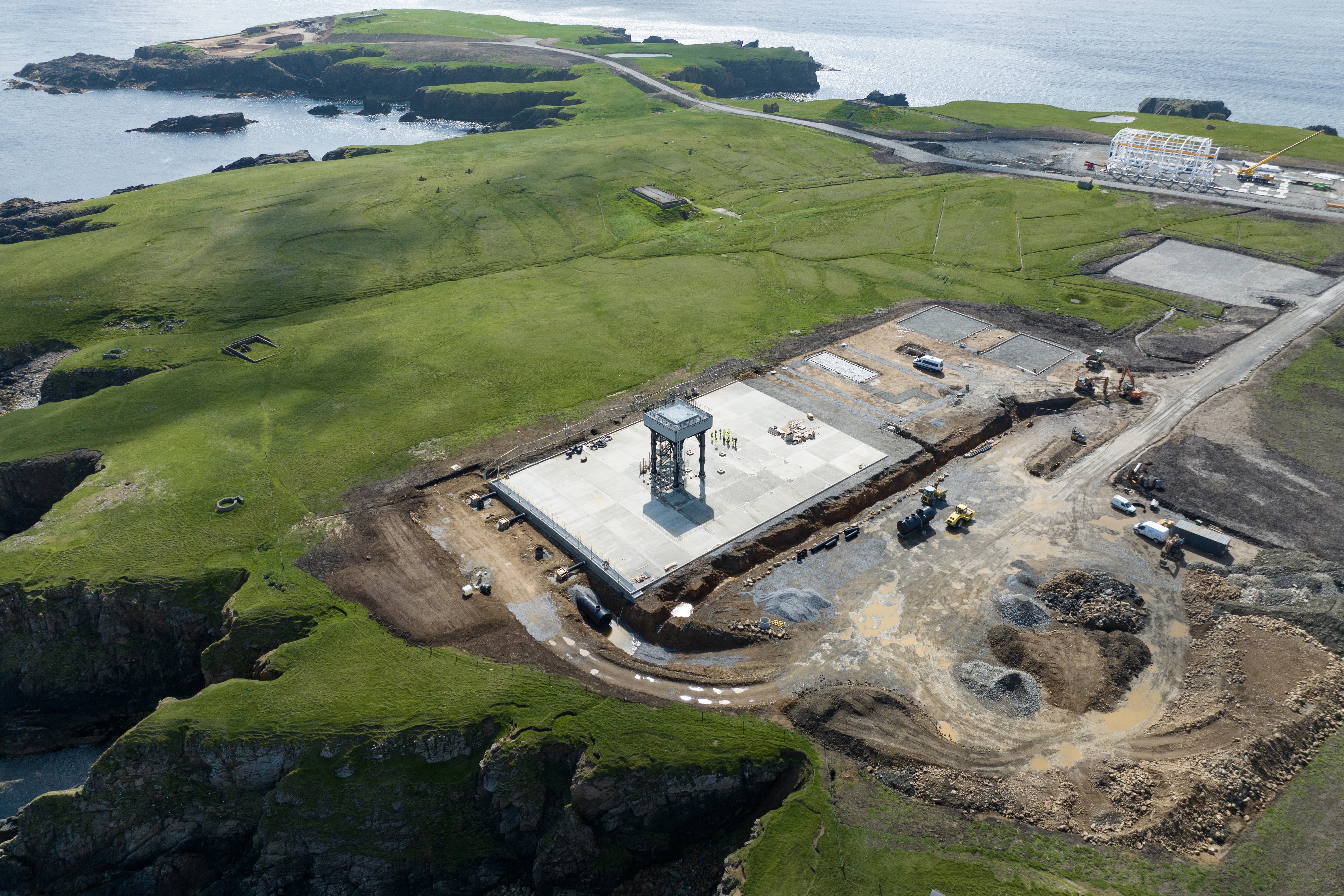Rocket engine explodes during test ahead of planned UK launch
The engine burst into flames in the test in Shetland on Monday evening.

Your support helps us to tell the story
From reproductive rights to climate change to Big Tech, The Independent is on the ground when the story is developing. Whether it's investigating the financials of Elon Musk's pro-Trump PAC or producing our latest documentary, 'The A Word', which shines a light on the American women fighting for reproductive rights, we know how important it is to parse out the facts from the messaging.
At such a critical moment in US history, we need reporters on the ground. Your donation allows us to keep sending journalists to speak to both sides of the story.
The Independent is trusted by Americans across the entire political spectrum. And unlike many other quality news outlets, we choose not to lock Americans out of our reporting and analysis with paywalls. We believe quality journalism should be available to everyone, paid for by those who can afford it.
Your support makes all the difference.A rocket engine has exploded during a test launch at a spaceport in Shetland.
German rocket manufacturer Rocket Factory Augsburg (RFA) said no-one was injured in the incident at SaxaVord Spaceport on Unst on Monday evening.
RFA is running engine tests at SaxaVord, western Europe’s only fully-licensed vertical rocket launch spaceport, in the run-up to holding the UK’s first vertical rocket launch into orbit there later this year.
Footage of Monday’s test shows the engine exploding on the launchpad, with the entire structure then engulfed by flames.
An RFA spokesperson said: “On Monday evening, RFA (Rocket Factory Augsburg) conducted a hot fire of its first stage at their launch site at SaxaVord Spaceport.
“This resulted in an anomaly that led to the loss of the stage. No-one was injured in the process.
“The launch pad has been saved and is secured, the situation is under control and any immediate danger has been mitigated.”
RFA held its first engine test at the site in May, with head of the UK Space Agency Paul Bate praising the successful operation as a “big moment”.
The firm test-fired four Helix engines from the first stage of its rocket, One, sitting atop a 12-metre high launch stool.
RFA says it is now working with the spaceport and the authorities to find out what led to the incident.
The RFA spokesperson added: “We develop iteratively with an emphasis on real testing.
“This is part of our philosophy and we were aware of the higher risks attached to this approach. Our goal is to return to regular operations as soon as possible.”
A SaxaVord spokesperson said: “This was a test and test campaigns are designed to identify issues prior to the next stage.
“We will work with RFA to understand and learn from the causes and support them as they move forward to the next phase of their preparations.”
A spokesperson for the UK Civil Aviation Authority said: “Advancing space technology is complex and at the cutting edge of aerospace and tests like the one at SaxaVord are essential to achieve future success.
“Incidents like this are anticipated by operators and the regulations and safety exclusion zones are in place to protect people and property.
“As the UK’s space regulator, safety is our priority and we’re in contact with those involved to make sure the industry continues to have the highest levels of safety and that all parties understand and learn from what has happened.”
SaxaVord received its spaceport and range licences from the Civil Aviation Authority in December 2023 and April 2024.